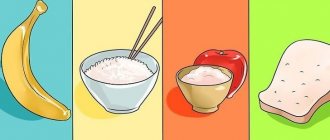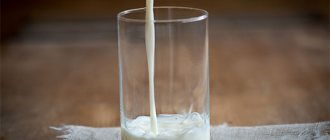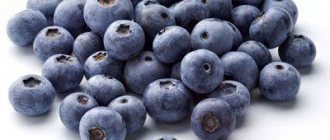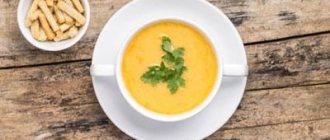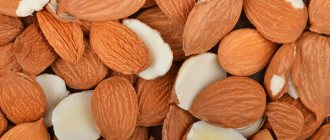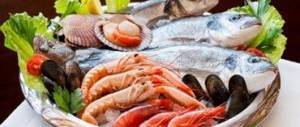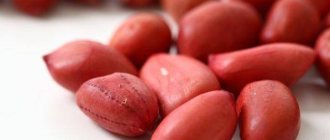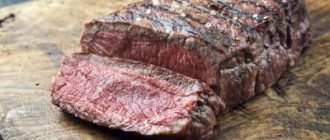Diarrhea (diarrhea, loose stools) is a pathologically frequent, watery, loose stool that occurs as a result of the negative impact of various external factors or diseases of the body on the walls of the small intestine. The causes of diarrhea can be intestinal infections - viral and microbial, food allergies, intolerance to certain foods, side effects of medications, poisoning and many others.
The danger with diarrhea is the loss of quite a large amount of fluid and salts in the stool, which can lead to dehydration. In addition, with diarrhea, the intestinal microflora naturally suffers, both in adults and children. Therefore, one of the main points in the treatment of diarrhea is to follow a special diet; you need to know what you can and cannot eat during and after diarrhea, in order to recover as quickly as possible.
Causes of the disease
Diarrhea is the name given to repeated bowel movements during the day, accompanied by pain. The causes of diarrhea can be varied. Among them are both pathologies of internal organs and infections, endocrine, neurofunctional abnormalities, we list the main ones:
- infections (viral, bacterial, fungal)
- staphylococci
- toxic substances
- pancreatitis
- liver and kidney diseases
- diseases of the stomach, large and small intestines
- psychoemotional disorders
- diabetes
- hormonal background
- dysbacteriosis
What are the benefits of fermented milk products for diarrhea?
To treat diarrhea, in addition to drug treatment, the doctor must prescribe a diet that excludes rough foods that irritate the intestinal walls. Many people wonder whether it is possible to consume fermented milk products for diarrhea, and which of them will be the most beneficial. To begin with, it should be noted that diarrhea is always accompanied by an imbalance of intestinal microflora.
In addition, they all have an antimicrobial effect to one degree or another:
- suppress the growth of pathogenic microbes (dysentery, E. coli, salmonellosis, staphylococcus)
- prevent the process of putrefactive fermentation in the intestines
What principles is the diet based on?
To prevent dehydration, a person suffering from diarrhea needs to drink plenty of fluids.
- To minimize the immediate load on the intestines, meals should be frequent; in fact, small portions should be eaten every 3 hours.
- Mechanical and chemical irritants of the intestines are excluded.
- Products with a choleretic effect are excluded.
- Anything that can provoke fermentation processes in the intestines is excluded.
- The diet should be energetically complete, but the amount of fats and carbohydrates should be at the lower limit of the physiological norm. The amount of protein in the diet does not decrease.
- It is necessary to replenish the loss of fluid and electrolytes that is inevitable with diarrhea.
In general, food is semi-liquid, boiled or steamed, preferably pureed, without spices.
What lactic acid products should be included in the diet for diarrhea?
Currently, there is a fairly wide selection of such products on store shelves: kefir, starter cultures, yoghurts, sour cream, cottage cheese, fermented baked milk, etc. Let's consider each product separately, its benefits, and in what quantities it should be taken in this case.
Kefir
It is characterized by all the properties of fermented milk products: easy digestibility, nutritional value, antimicrobial effect. The sour taste of kefir is explained by the presence of lactic and carbonic acids in it. This product has a high ability to suppress putrefactive processes in the intestines and is widely used in medical nutrition. During illness, you should not get too carried away with consuming kefir. The daily norm for a child is 200 ml per day, for an adult - 400 ml. This drink copes well with dysbiosis (restores intestinal microflora), improves the digestion process and normalizes stool. It must be remembered that in therapeutic nutrition for diarrhea, kefir is used to consolidate stool, the production time of which is more than three days. If such a drink is aged for less than three days, it can cause the opposite effect, as it has a laxative effect. In case of severe clinical picture, the use of this product should be avoided until consultation with a doctor and an accurate diagnosis. Contraindications. Kefir is not recommended for high stomach acidity, dysentery, and gastrointestinal ulcers.
Yogurt
This is a high-calorie product with a characteristic sour taste and thick consistency. It is well absorbed by the body and has high nutritional value. Lactic acid bacteria contained in the product, when they enter the intestines, improve its microflora and are active against putrefactive infections. Also, according to experts, including yogurt in your diet for diarrhea can successfully treat some types of bacterial infections. Consumption of a product containing live probiotics improves the functioning of the entire digestive system and has a positive effect on the restoration of normal stool. It should be noted that all of the above properties are possessed only by yoghurts with a sufficient content of live bacteria, without emulsifiers, dyes, sugar, or gelatin. The presence of natural fruit additives is acceptable. This product has no contraindications. The consumption rate for children is 50-100 ml, for adults 200 ml. Abuse of the product can cause increased diarrhea.
Sour cream
This product is made from cream and contains a significant amount of milk fat, water-soluble (B1, B2, PP, C) and fat-soluble (A, D, E) vitamins, lecithin.
Due to the presence of lactic acid bacteria in its composition, it has a beneficial effect on the gastrointestinal tract. The fat in sour cream is easily digested and absorbed by the body.
- pancreatitis
- kidney, liver and gallbladder diseases
- diabetes
- cardiovascular pathologies
- ulcerative lesions of the gastrointestinal tract
- gastritis and hyperacidity
It is not recommended to give sour cream to children under 3 years of age; it can be used as a seasoning for any dish. In severe cases of diarrhea, sour cream should be excluded from the diet.
Cottage cheese
The nutritional value of cottage cheese is due to its high content of complete, easily digestible protein, fat, minerals and the vitamin-like substance choline. This product contains almost all the minerals necessary for the body, but it is richest in calcium and phosphorus. The high content of fermented milk bacteria prevents the proliferation of viruses and the development of putrefactive processes, restores the intestinal microflora, which convincingly proves that diarrhea from cottage cheese is not possible. Including fresh cottage cheese in the sick menu will help restore calcium in the body. It should be noted that another important property of this product is its high nutritional value, with minimal irritating effect on the mucous membrane of the inflamed intestine. Freshly prepared cottage cheese for diarrhea exhibits high strengthening properties against loose stools, normalizing the entire digestion process.
- kidney pathologies
- liver and gallbladder diseases
During an exacerbation of the disease, you should refrain from taking this product until you consult your doctor.
This is one of the most high-calorie and nutritious protein foods. Its protein contains all the essential amino acids. It contains all the macro- and microelements necessary for life. Cheese is especially rich in calcium and phosphorus, and in an easily digestible form. The use of this product is allowed for diarrhea, as it helps restore normal intestinal microflora and promotes the growth of beneficial bacteria. Cheese should be consumed to prevent diarrhea in children and adults. It can be used as an additive to cereals that are recommended for dietary nutrition. Even a small amount of the product can saturate the patient’s body and restore the mineral composition of the blood. You should exclude sharp varieties of cheese from your diet, which irritate the gastrointestinal mucosa, which is unacceptable in case of such digestive disorders. Consumption of all fermented milk products has a positive effect on the dynamics of the disease. Especially useful during illness: kefir, cottage cheese, yogurt (natural). These products have virtually no contraindications and can be eaten to prevent and treat diarrhea. You need to be more careful with the consumption of sour cream, monitor the consumption rate. You need to exclude sharp varieties of cheeses from your diet, which irritate the intestinal mucosa.
Sample menu for one day
First breakfast. Steamed omelette. A glass of rosehip decoction with white crackers. Lunch. Fresh cottage cheese—100g. Glass of tea Lunch. The first course is chicken broth soup with grated carrots and vermicelli. For the main course - steamed chicken breast cutlet with grated buckwheat. Dessert - jelly made from blueberries. Afternoon snack. A glass of yogurt or kefir Dinner. Boiled fish with pureed rice porridge. A glass of tea with a white cracker and a piece of hard, mild cheese.
The following video may be helpful
What can you eat after diarrhea?
The main goal of a diet for diarrhea is to quickly restore the functioning of enzymes and normalize the intestinal microflora. This will help the intestinal walls to fully digest and absorb food and liquid. What can you eat if you have diarrhea in the first days?
For diarrhea and the first days after it, dietary table No. 4 is prescribed, which helps reduce fermentation and relieve irritation of the mucous membranes. All food is steamed, boiled and pureed, all food is served in warm, semi-liquid and liquid form, which facilitates digestion and minimizes the impact on the intestinal walls.
In the first hours, the basis of nutrition will be liquid - unsweetened and non-concentrated compote, tea with lemon, herbal teas, non-carbonated alkaline mineral water, decoction of rose hips, raisins or blueberries, saline solutions.
From food products in the first hours of the disease and subsequently:
- Boiled white rice, which is taken 50-100 g every two hours with rice water.
- Potassium-replenishing and bonding bananas, two bananas every four hours.
- Liquid porridge with water made from semolina, risk, oatmeal or buckwheat.
- White bread crackers.
- Steam omelet or soft-boiled egg, pureed cottage cheese the day after diarrhea.
- Baked, boiled pureed apples or carrots.
- Slimy soups in non-concentrated chicken broth with meatballs.
- Lean fish fillet or lean meat without skin and bones or steamed cutlets.
- Vegetable purees or decoctions.
- Kissels with pear, blueberries, quince, bird cherry.
- Green tea, herbal infusions.
Prevention of intestinal disorders
The importance of fermented milk products in dietary nutrition for diarrhea is difficult to overestimate. Their nutritional value is due to the high content of easily digestible protein, minerals, and vitamins. To prevent future relapses, as well as to prevent diarrhea from becoming a chronic disease, doctors recommend monitoring your diet. To prevent diarrhea, it is necessary to consume as much fermented milk products as possible, which are rich in lacto- and bifidobacteria, which provide antiviral and antibacterial effects.
Professional skills: Colon hydrotherapy, treatment of gastrointestinal diseases
For diseases of the gastrointestinal tract accompanied by diarrhea or vomiting, it is necessary to follow a certain diet. Whether it is possible to eat cottage cheese with diarrhea depends on the nature of the ailment and the characteristics of the patient’s body. For stomach and intestinal upsets, kefir and cottage cheese are not prohibited, but recommended.
Kefir after diarrhea: reviews
Is it possible to drink kefir after diarrhea? Patient reviews indicate that this product helps prevent dysbiosis after poisoning. Fermented milk drinks can also be consumed by people who have had gastrointestinal infections, but only after complete recovery.
Patients report that regular consumption of kefir after diarrhea helps avoid relapses of intestinal disorders and promotes the health of the gastrointestinal tract. However, it is very important not to overuse fermented milk products. If you drink a liter packet of kefir at a time, it will not bring any benefit, but will only provoke diarrhea.
You need to be very careful when using kefir after diarrhea. You can drink no more than 0.5 liters of drink per day. For 10 - 14 days after illness, you must continue to adhere to a gentle diet. It is important to remember that if you do not eat properly, the symptoms of intestinal disorder may recur.
Almost every person on the planet has experienced diarrhea. This is an unpleasant and common symptom of many pathologies. Feelings of increased bowel movements with simultaneous changes in stool. Less commonly, indigestion causes stomach pain, high fever, and vomiting. A folk remedy is kefir. Hundreds of tips have been published in magazines, newspapers and on the Internet, but should you trust them? Let's consider the situation in order.
Causes of the disease
Doctors almost never prohibit the use of cottage cheese during loose stools. This dairy product itself can cause intestinal disorders only with severe enzymatic deficiency.
Cottage cheese will help to heal faster when diarrhea occurs in adults caused by the following reasons:
- Intestinal infections . Both infectious and viral etiologies lead to diarrhea. Thus, the body tries to get rid of toxins faster. Eating cottage cheese will not affect the rate of destruction of the infection, but it will speed up recovery.
- Poisoning . These include alcohol, food, and household poisoning. After removing toxins, the curd product will help restore normal functioning of the gastrointestinal tract.
- Dysbacteriosis of any origin . With this diagnosis, it is necessary to consume as much fermented milk products as possible, as they contain natural probiotics that restore microflora.
- Endocrine disorders . Cottage cheese contains a lot of calcium, and this macronutrient is essential for normalizing metabolism.
- Kidney and liver diseases . You can eat cottage cheese for some diseases. Milk protein is easily digestible and does not increase the load on the excretory system.
Important! Cottage cheese should be given to a patient with diarrhea in small portions and in moderation.
Causes of diarrhea
The following factors may contribute to the appearance of loose stools:
- viral diseases (flu, ARVI);
- infectious diseases;
- alcohol consumption;
- food poisoning;
- poisoning with toxic substances;
- pathologies of the digestive system;
- taking antimicrobial drugs;
- nervous disorders;
- unhealthy diet: poor diet, irregular diet, overeating;
- diseases of the liver, kidneys, pancreas;
- allergy;
- lactose (milk protein) intolerance;
- parasite infection;
- oncological diseases.
Depending on the nature of the origin of diarrhea, treatment is prescribed, which includes following a certain diet. In some cases, with intestinal disorders, the use of fermented milk is allowed, in others, on the contrary, it is strictly prohibited.
Let us consider in more detail lactic acid products, their properties, effects on the digestive organs, indications and contraindications for digestive disorders.
Fermented milk products for diarrhea
Whether it is possible to eat milk and fermented milk products during diarrhea depends only on the general condition and nature of the primary disease. Yoghurt or cottage cheese, especially low-fat cheese, have virtually no effect on the mechanism of diarrhea. But they help get rid of dysfunction of the stomach, large and small intestines.
Fermented milk products are made by fermentation, that is, adding yeast or lactic acid bacteria to milk. The content of live bacteria without emulsifiers is very high here. Such products can restore intestinal microflora without the use of artificial probiotics. This category includes kefir, cottage cheese, yogurt, cheese, sour cream, and yogurt.
Kefir
Kefir contains a maximum of lactobacilli with minimal fat content. The product is easily digestible, suppresses the activity of putrefactive bacteria and helps restore normal microflora.
The product is used for diarrhea caused by:
- Dysbacteriosis.
- Alcohol and food poisoning.
- Intestinal inflammation.
The recommended daily dose is 200-400 g. If you have high acidity, ulcers, or dysentery, you should not drink the drink.
Yogurt
This is a high-calorie fermented milk product with a thick consistency. Whether you can drink yogurt with diarrhea depends on its composition. If the drink includes lactobacilli and does not contain dyes, sugar, or other sweet additives, then you can safely eat it.
Yogurt's bacteria are so active in suppressing other species that it is prescribed to treat infectious diarrhea. Otherwise, yogurt will only make the disorder worse.
Hard cheese
During diarrhea, cheese acts as a source of micro- and macroelements that the body loses. It saturates the body with calcium, phosphorus, and the best quality protein.
For health and well-being, cheese can be eaten during the recovery period, when the patient needs to gain strength faster.
Sour cream
Sour cream contains more fat than protein, is quickly absorbed and normalizes hormonal balance. If you have diarrhea, you can eat low-fat sour cream and no more than 15-20 g per day.
What are the benefits of cottage cheese for a disorder?
Is it possible to eat cottage cheese when diarrhea appears? It is explained by its composition. It does not in any way cause stool upset, as it contains a minimum of lactose. But it supplies the body with calcium and iron, preventing anemia and atherosclerosis. Cottage cheese contains a lot of protein, thanks to which it quickly restores strength, but does not affect the intestinal mucosa.
Cottage cheese for diarrhea is considered the most valuable and useful product. It is recommended to eat it for poisoning, inflammation of the gastrointestinal tract, hypertension, endocrine system disorders, and infections. There are several explanations for this:
- A large number of lactobacilli. Cottage cheese does not destroy microflora, it only normalizes its bacterial composition. Lactic acid bacteria suppress putrefactive bacteria, the latter stop multiplying and affecting the functioning of the intestines.
- Cottage cheese is a fermented product . Even the small amount of milk sugar it includes is in digestible form. The product is available to everyone without exception.
- High protein digestibility . Another parameter worthy of attention. For recovery, it is important to consume enough protein, but a weakened body has difficulty fulfilling this task. Curd protein does not irritate the stomach and is quickly absorbed.
If you have diarrhea, you can and should eat cottage cheese, but the daily intake should not exceed 100-200 g. This volume should be divided into several servings.
Composition of the drink
Kefir, due to its contents, rich in beneficial microelements, is considered a product of unique value for the body. It contains the following beneficial substances:
- complex of vitamins;
- a large amount of mineral salts;
- fatty acid;
- milk proteins.
During the preparation of kefir, special alum fungi are involved, which ensure the fermentation process. In total, this drink contains 22 different species of bacteria and many microorganisms. They have a positive effect on the microflora of the gastrointestinal tract. These bacteria are equally useful and effective in combating diarrhea and constipation.
Contraindications
Cottage cheese for diarrhea is excluded in the following cases:
- For certain diseases of the liver and gall bladder, when disturbances in the secretion of bile acids occur. With such ailments, you can only eat low-fat cottage cheese, but it is less digestible.
- Severe kidney dysfunction. The product is rich in protein, and for the kidneys in this state this is an unbearable burden. Therefore, it should be excluded from the diet.
If you are lactose intolerant, cottage cheese can be eaten in limited quantities. It is a fermented product and contains very little milk sugar.
Nutritional Features
Whether you can eat cottage cheese if you have diarrhea also depends on its severity. On the first day you need to abstain from any food and only drink: saline solutions, water, unsweetened weak tea, sour fruit juice. If the diarrhea is still severe, you should abstain for another 1 day.
Then some restrictions must be observed:
- Eat small portions 5-6 times a day, or more often.
- At first, include foods with an astringent effect in your diet: rice porridges and decoctions, buckwheat porridge, white bread crackers.
- You can add yogurt and cottage cheese casseroles to the menu if it is determined that the cause of diarrhea is not an intestinal infection, dysentery, or another diagnosis requiring a special diet is not confirmed.
- For diarrhea, it is better to eat low-fat cottage cheese, but you can also eat medium fat content – up to 9%.
- The daily dose of cottage cheese is 100-200 g.
Important! Only real cottage cheese obtained by fermentation has beneficial properties. A curd product will do nothing but harm.
For children, it is better to use special children's fermented milk products, as they contain less fat and do not contain any dyes or preservatives.
Additional measures
- fluid intake from 2 liters. per day;
- exclusion of pickled, fatty, salty, smoked foods;
- menu: porridge (rice, buckwheat), broths (chicken, turkey), low-fat fish;
- drink: strong tea, jelly, blackcurrant compote, rose hips;
- crushed food - small portions, 5 times a day;
- sorbents – polysorb, activated carbon, smecta;
- lacto-, befido-bacteria – acipol, linex;
- enzymes for the functioning of the stomach - pancreatin, mezim, microzyme.
In cases of intestinal infection, antibiotics are prescribed - cephalosporins and penicillins. Kefir is excluded from the diet.
The diet is followed for 7–14 days, until symptoms disappear and appetite appears. After each meal, a cup of tea with lemon balm, mint, raspberry or black currant is recommended. There should be a gap of 30–40 minutes between kefir and warm drink.
Watch your drinking limits and don’t drink beer too often. If this happens rarely and in moderation, then there will be no harm to the body. But if you give up this drink altogether, the person’s general condition will improve.
Preventive measures
Fermented milk products should be consumed both for diarrhea and to prevent it. They contain a large amount of lactobacilli, which helps maintain intestinal microflora.
To prevent diarrhea, consume all dairy products, but subject to certain recommendations:
- If you have diarrhea, you can eat yogurt only without flavorings. For prevention, it is better to use the same drink, but a drink with the addition of cereals, honey, and berries is also quite acceptable.
- You can drink homemade cow's milk, but be sure to separate it from other products. It is better not to mix milk with anything.
- To prevent diarrhea, you should include fresh cottage cheese in your diet: low-fat if you have problems with the gallbladder or pancreas, and classic if there are none.
- Kefir is taken in the afternoon: it is a fermented product and is absorbed better than milk. You can also use fermented baked milk and yogurt.
Important! The properties of kefir change over time. A drink received 1-3 days ago has a laxative effect, 3-4 days - a strengthening effect.
You should not combine dairy products with each other. For one meal, consume one serving of cottage cheese, milk or cheese.
Every patient who has this problem is interested in whether it is possible to drink kefir during diarrhea. It is no secret that this fermented milk drink is not only dietary, but also healthy. It is often drunk to relieve constipation and intestinal disorders. Will it help in the fight against diarrhea?
Traditional methods of treatment
To speed up the healing process, taking kefir for diarrhea can be combined with medicinal plants, such as chamomile or horsetail. The duration of therapy is determined in each case individually.
We recommend reading: Inhalations with lazolvan and saline for adults: dosage, instructions
Kefir alum, which is added to cooled milk, has demonstrated high effectiveness in the fight against diarrhea. They are infused for 24 hours and taken 2 glasses each. The drink is allowed to be consumed only on the third day, for a total of one week.
Despite the effectiveness of kefir for diarrhea, there are a number of restrictions on its use:
Why is drinking kefir beneficial?
A drink like kefir is aimed at normalizing the functioning of the gastrointestinal tract and restoring intestinal microflora. However, we are talking only about the use of fresh kefir, because a product that has a shelf life of more than a week cannot be taken and can provoke even greater problems. In addition, kefir contains useful micro- and macroelements, vitamins necessary to improve immunity.
In addition, an adult should take the drink because of:
- Ability to inhibit the development of bacteria that cause diarrhea;
- Ability to strengthen the immune system and cleanse the body of toxins;
- Quenching thirst;
- Restoration of damaged intestinal epithelium.
It is these properties that have made kefir an incredibly useful and popular drink, including in the treatment of diarrhea.
Prohibited Products
Let’s now look at what you can’t eat if you have diarrhea, either in the acute stage or in the recovery stage. The list is wide, but for a person who is tormented by diarrhea, life appears in much less rosy colors and it will not be so difficult for him to cope with temptation.
You should avoid the following products:
- Any meat, especially fatty meat, fried in a golden brown crust, smoked.
- Offal – brains, liver, kidneys.
- Sausage, frankfurters, smoked meats.
- Any fish - fatty, fried, smoked, salted, canned.
- Whole milk and dairy products - sour cream, cream, yoghurts, cheeses, cottage cheese, carbonated whey.
- Hard-boiled and fried eggs.
- Fresh and sauerkraut, radishes, cucumbers.
- Factory-made and home-made canned vegetables.
- Horseradish, mustard, ginger, other spices.
- Mushrooms in any form.
- Any very sour fruits and berries.
- Baked goods, yeast bread, pies, pastries, cakes, sweets.
- Cold and carbonated drinks.
- Alcohol.
What can you eat if you have diarrhea?
The list of acceptable and medicinal products for diarrhea includes:
- yeast-free white crackers;
- starch solution (natural enterosorbent);
- thick rice soup cooked in water;
- flax or hemp porridge in water;
- gooseberry berry pulp with the addition of banana and honey;
- bird chokeberry compote or infusion (or chokeberry);
- pear compote;
- rowan juice or infusion;
- blueberry or blackcurrant jelly;
- infusion of chicory, hawthorn;
- tea from raspberries, blackberry leaves, sage or linden flowers, chamomile, St. John's wort;
- infusion of alder cones;
- pomegranate infusion;
- strong black loose leaf tea without sugar.
You can eat 4-6 black peppercorns on the first day. If the diarrhea does not go away, the dose can be repeated.
On the first day you can eat 12 large grated apples, peeled. Every 2 hours take 1 apple. Do not eat or drink anything else. Usually this method can completely stop the diarrhea.
Diarrhea accompanied by vomiting can be stopped by adding lemon juice to warm water.
Now let's see what you can eat during the recovery period, when the acute stage has passed.
First, you need to minimize the amount of food you consume. Secondly, you should switch to a vegetarian menu. The list of permitted products includes:
- Porridge cooked in water from any grain except pearl barley.
- You can make light soups from vegetables, with the exception of cabbage soup, and make puree. It is preferable to steam vegetables or bake them in the oven.
- Bananas are allowed to be eaten as fresh fruit in the first days. Pears are acceptable in small quantities. Apples can be baked in the oven and eaten flavored with a small amount of honey (1-2 teaspoons). Preferable fresh or frozen berries are blueberries, strawberries, raspberries (no more than half a glass).
- In addition to crackers, it is permissible to eat dried bagels.
What can you drink if you have diarrhea?
On the first day - only clean filtered water and herbal tea. On the second day, you can drink compotes, sugar-free jelly, non-acidic freshly squeezed vegetable and fruit juices, which do not have an irritating or choleretic effect.
As the intestinal microflora and epithelium are restored, restrictions can be gradually removed.
We wish you a speedy recovery and normalization of the gastrointestinal tract!
Diarrhea or diarrhea is loose stool that occurs more than three times a day, which is often accompanied by nausea, vomiting, cramps, abdominal pain, fever and other unpleasant symptoms. During periods of indigestion, you should avoid certain foods and follow a diet.
Table of contents:
In what cases is it okay to take kefir for diarrhea?
Thanks to kefir, the necessary elements are absorbed and absorbed, which, in turn, leads to an increase in the tone and energy of a weakened body. However, drinking the drink is possible only after the period of acute symptoms of diarrhea has ended: most often, this happens on days 2-3. In the initial stages, its use is prohibited due to its irritating effect on the inflamed mucous membrane and the ability to accelerate gastrointestinal motility.
Starting from the second day of diarrhea, the drink is taken twice a day, 300 ml for 14 days.
In what cases is kefir prohibited for diarrhea?
It would seem that there are no situations in which such a useful product could be contraindicated. But, unfortunately, even its use can be harmful if:
- Lactose intolerance;
- Diseases of the gastrointestinal tract characterized by high acidity;
- Chronic stomach disorders;
- Under one year of age;
- Persistent diarrhea and irritable bowel syndrome;
- Dysentery, salmonellosis and infectious diseases.
If the listed contraindications do not affect you, then do not forget that only fresh drinks should be consumed. As soon as a few days pass, the proliferation of lactic acid bacteria stops, which means the healing properties disappear.
Properties of kefir
Kefir is rich in beneficial substances: minerals, vitamins, amino acids and lactic acid bacteria, which are a natural probiotic that has a beneficial effect on the intestinal microflora and helps improve metabolism and normalize stool. Therefore, it is used for digestive disorders. The average daily dose is: for a child about 200 grams, for an adult about 400. Abuse of this drink can provoke an exacerbation of intestinal ailments. Therefore, after drinking kefir, an acute form of diarrhea may occur.
Used for the following ailments:
- Dysbacteriosis, that is, when the intestinal microflora is disrupted as a result of taking antibiotics or poor-quality food. It is able to suppress the growth of harmful bacteria in the intestines, thereby preventing the development of infections.
- Mental disorders, since it has an excellent sedative effect and helps eliminate diarrhea caused by this disease.
- Colds, as it helps stimulate the body's defenses.
- Alcohol intoxication, as it has a cleansing property, removes waste and toxins from the body.
- As a prophylactic against diseases of the gastrointestinal tract, kidneys, and liver.
Drinking kefir for diarrhea is allowed, but you need to remember that a drink made less than three days ago causes a weakening of the intestines, but a drink made three days ago and older has a fixing effect. But, if diarrhea occurs in an acute form, accompanied by vomiting and abdominal pain, you should not consume kefir until the causes of the disease are determined. The drink is prohibited to be consumed:
- with increased stomach acidity;
- for infectious inflammatory bowel diseases;
- dysentery;
- child up to eight months.
Use with extreme caution for stomach ulcers, pancreatitis, allergies, and children under three years of age.
Rules for drinking kefir with loose stools
To restore intestinal function after diarrhea, you must adhere to the following rules for drinking the drink:
- If taking kefir has led to more frequent trips to the toilet, it is important to stop using it for several days;
- Administer the drink after the end of the acute phase of intoxication, so as not to injure the body;
- You should not take more than 500 ml of fermented milk product.
Drink the drink twice a day: in the morning on an empty stomach and in the evening before going to bed.
How to get rid of diarrhea?
In order to quickly and safely eliminate diarrhea, consuming kefir alone is not enough. A consultation with a gastroenterologist will help identify the cause of the disease and determine a treatment regimen. Most often, medications and other medications suitable for the patient are prescribed. Diet is a mandatory measure for everyone with diarrhea, especially when diarrhea is the body’s protective reaction to the influence of bacteria.
So, to treat diarrhea, a person must:
- Avoid products that lead to fermentation and choleretic effect;
- Switch to fractional meals;
- Include rice porridge, crackers, and strong tea in your diet;
- Exclude smoked foods, spicy and fried foods, and some vegetables with coarse fiber from the menu. A similar diet is followed for several days;
- Observe the drinking regime, you can add salt solutions.
In cases where diarrhea is caused by a violation of the intestinal microflora, kefir is included in the diet immediately. However, despite the rule of using fresh kefir, in this case a three-day fermented milk drink is more useful. It is appropriate to use Linex, a drug with processed lactic acid bacteria.
